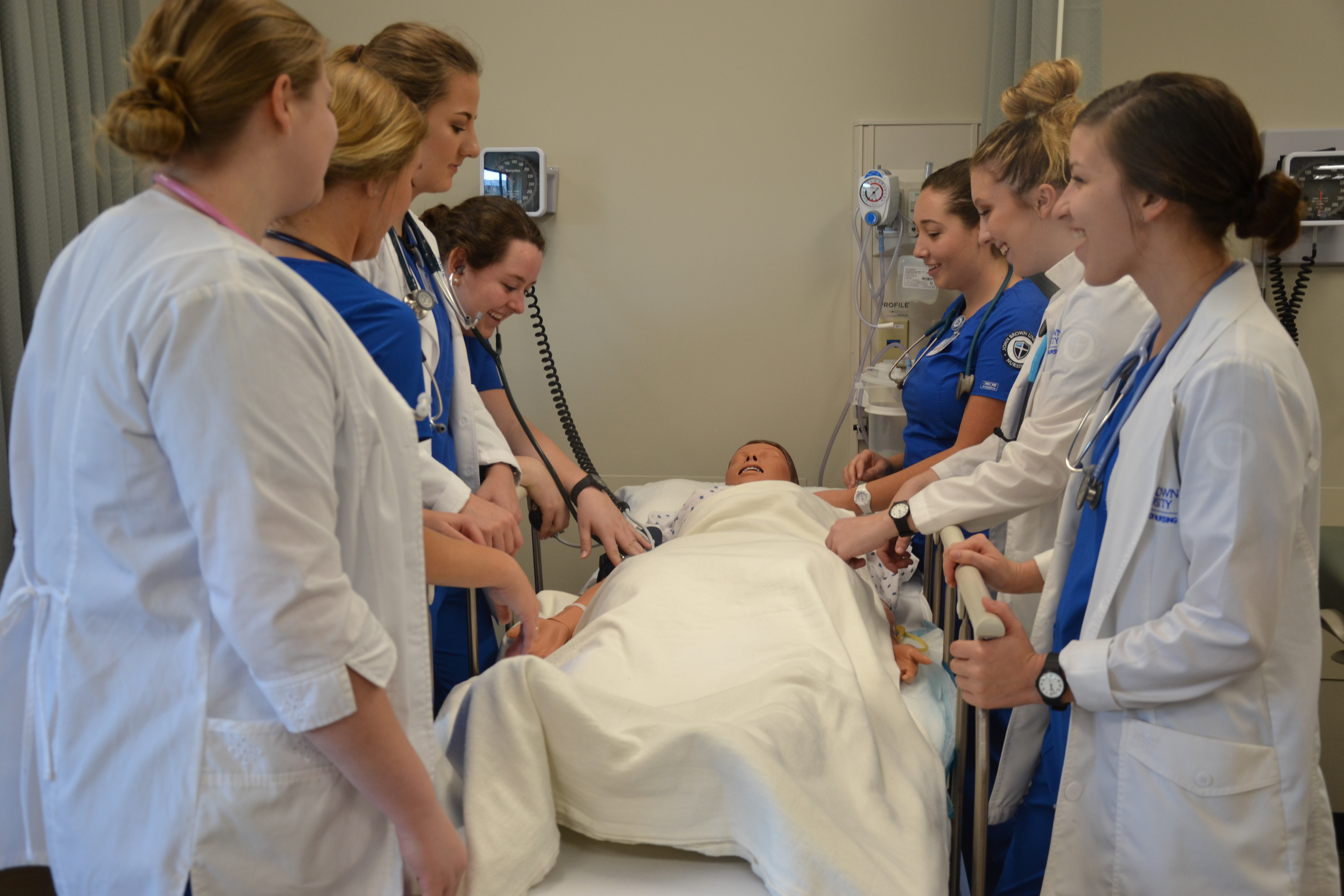![]()
Arkansas nursing students protected by the Deferred Action for Childhood Arrivals, or DACA, received the news that their four years work in their respective programs may not conclude as expected.
The National Council for Licensure Exam, the exam all nursing students must pass before becoming registered nurses, requires students to have social security cards, something many protected by the DACA do not have. At the beginning of October, several nursing students under DACA received the news that they will not be allowed to take the exam in the state of Arkansas.
A mandate passed during President Obama’s Administration requires U.S. citizenship or specific immigrant status to take the exam, but undocumented students with DACA status are not included on this list.
Ellen Odell, head of John Brown University’s nursing department, found the situation disappointing. “It’s really sad. I want all my students to be productive, great people in the workplace.” Odell said that one of her students may not get that chance.
A pre-nursing student at JBU who is protected by DACA is now waiting to learn whether or not she will continue in the program.
“If DACA is not reapproved, she will likely not stay at JBU or [will] certainly change her major because she can’t take the NCLEX,” Odell said.
DACA students at Northwest Arkansas Community College and Springdale’s Northwest Arkansas Technical Institute face a similar issue. Many of them did not learn of the mandate until they had almost finished their programs, with some already denied access to the exam.
These restrictions disappointed Karla Condado, a junior communications major from JBU, who said “[DACA] opened a lot of doors for people who wouldn’t have had the opportunity to go to college and study,” Condado said.
“It made people step out and say ‘yes, I have an illegal status, but it was not my fault. It was involuntary. This is my home. I want to study and make my situation better.’”
Ernesto Galdamez, sophomore nursing major, echoed Condado’s disappointment. “The program was created for everyone. It’s so unfair to promise immigrant students a chance and have them work as hard as they can for something, then at the end of it, strip it all away. Even the process of getting into nursing school. To get so far and have it taken away…it’s heartbreaking,” Galdamez said.
Mark Wallenmeyer, NWACC’s dean of health professions, is fighting to open legislation in Arkansas to potentially override the mandate. This process, however, takes time, which is something DACA students do not have, as many recipients have only two years before their DACA status expires.
DACA nursing students do have the option of taking the exam in three states that do not recognize the mandate: New York, Washington and California. However, the students would “have to stay there. You can’t cross state lines in this case like you can with a normal license. You would have to move there, and live there and work there,” Odell said.
Brianna Bowerman, senior nursing major, said this option is not plausible, “They can go to other places…but for some students, that can be uprooting families, … and that’s not always an option for people. To put in all that hard work and time and not be able to complete it.”
Alternatively, nursing students can settle for positions in hospitals that do not require certification, such as “surgical scrub tech, nursing assistant, patient care assistant, dietician, case worker [or] mental health professional,” do not require state licensure and are alternative healthcare related fields for these students, according to Odell.
Odell and other nursing faculty members at JBU can currently do nothing to change the mandate for their students.
“Right now, it’s just a wait[ing] game. The student has personally talked to me and said this is the situation that they have found themselves in, and they will be in touch with me when [a] vote occurs,” Odell said. “They’re hoping for the best and not thinking about it quite yet. As far as helping them, we are in a holding pattern. If and when bad things happen, then we will certainly advise . . . the student and see what the next step is.”
Posted by Megan Koontz
